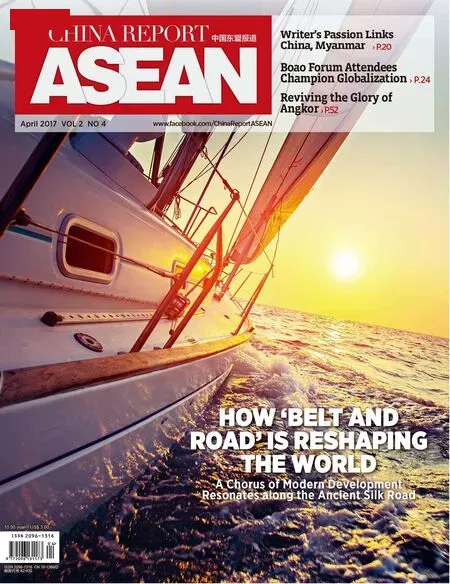New Bridge for China-Philippine Economic Cooperation
By Shen Hongfang
New Bridge for China-Philippine Economic Cooperation
By Shen Hongfang
Eager to grow but lacking capital, Philippine industrial parks offer much to Chinese firms seeking investment opportunities

About the author: Shen Hongfang is a professor at Xiamen University’s Center for Southeast Asian Studies.
In recent years, the Philippines has maintained rapid economic growth, but weaknesses in its economic development have remained. These weaknesses include a lagging manufacturing industry and lack of infrastructure construction. This has further stimulated the willingness of the Philippines to cooperate with China, a global manufacturing power. Over the past few years, bilateral relations between China and the Philippines have witnessed occasional friction, but economic and trade ties between the two countries have continued to develop, which lays a solid foundation for future economic and trade cooperation.
From my perspective, the biggest challenge facing the Philippine economy is pervasive unemployment. To realize inclusive growth, a transition should be made from “over-reliance on overseas labor remittances to drive domestic consumption” to “rejuvenating manufacturing with foreign investment as the driving force”. Based on the current development conditions of the Philippines and cooperation between China and the Philippines over the past several years, the Philippines should seek further involvement in the Asian Infrastructure Investment Bank (AIIB), initiated by China, and the construction of Sino-Philippine industrial parks, which are effective ways for the Philippines to solve the abovementioned problems, are also in line with the mutual interests of both China and the Philippines.
It is noteworthy that the Philippines has shown great willingness to join the AIIB as one of the bank’s 57 founding members. Compared with the contradictory and hesitant attitude that the Philippines previously showed toward past regional economic cooperation efforts, the Philippines is active in participating in the Belt and Road Initiative and the construction of the AIIB.
The Philippines has so far participated in only 19 bilateral and regional trade agreements, accounting for only 8.67 percent of total ASEAN trade agreements. Some of the agreements are still in the proposal stage. This situation clearly doesn’t match the economic and political status of the Philippines in the region. This is mainly due to the fact that the manufacturing sector of the Philippines targets the domestic market, so productivity has not been improved and enterprises lack motivation to innovate. Liberalization policies of regional trade and investment haven’t helped the Philippines export its products. However, foreign products have poured into the Philippine market, further squeezing the country’s small and mediumsized manufacturers, exacerbating poverty.
The Belt and Road Initiative and the AIIB focus on investment in infrastructure and capacity cooperation, which are effective ways for China and the Philippines to further attract investment and stimulate the vitality of the manufacturing sector. Thus, participation in the Belt and Road Initiative and AIIB construction is of great significance to the Philippines.
The role of industrial parks in the Philippines should be maximized. There are more than 100 industrial parks in the Philippines, which are in great need of foreign capital. An injection of capital would not only promote local infrastructure construction, but also increase job opportunities, as well as develop agriculture, health care and high-tech sectors so as to enhance the overall national economy. Therefore, industrial parks are a good way for the Philippines to attract foreign investment, and for Chinese companies seeking overseas investment opportunities, they are also worthy of consideration.

